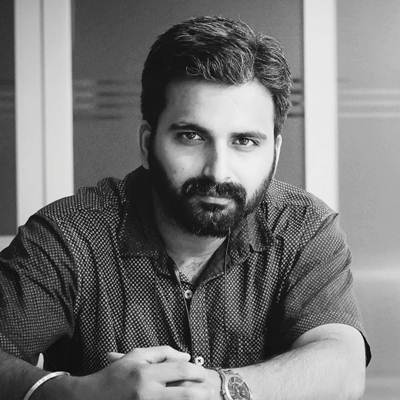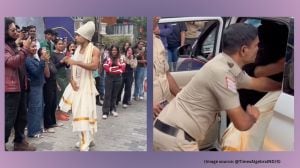B R Ambedkar’s vision of ‘one nation, one Constitution’ ensures India remains strong, united: CJI B R Gavai at Osmania University
For CJI B R Gavai, Ambedkar’s first speech, despite the short notice, in the Constituent Assembly on December 17, 1946, was enough to know of his vision of the Constitution.
 For Justice Gavai, Ambedkar’s first speech, despite the short notice, in the Constituent Assembly on December 17, 1946, was enough to know of his vision of the Constitution. (File Photo)
For Justice Gavai, Ambedkar’s first speech, despite the short notice, in the Constituent Assembly on December 17, 1946, was enough to know of his vision of the Constitution. (File Photo)Chief Justice of India (CJI) Bhushan Ramkrishna Gavai Saturday spoke about B R Ambedkar’s role in forging a united India through a “unique federal structure” and “single citizenship”.
Speaking on the topic, ‘Constitution of India: the Contributions of Babasaheb Dr BR Ambedkar’, at Osmania University in Hyderabad, CJI Gavai said, “Unlike the American system with dual citizenship and separate state Constitutions, Ambedkar envisioned one single Constitution which will be applicable to all the citizens, all the states throughout the country, ensuring ‘one nation, one Constitution’ to keep India strong and united.”
For Justice Gavai, Ambedkar’s first speech, despite the short notice, in the Constituent Assembly on December 17, 1946, was enough to know of his vision of the Constitution.
“Dr Ambedkar said that in the Objectives Resolution, we have provided for rights, but what about remedies? If the rights are without remedies, the rights are useless,” Justice Gavai said, pointing out that this vision directly led to the inclusion of Article 32 in the Constitution, which grants citizens the right to directly approach the Supreme Court for redressal of violations of fundamental rights.
He cited another criticism Ambedkar faced for the Constitution being “too rigid” or “too liberal”. “But Dr Ambedkar said that we can’t work the Constitution for times together. We have to provide a space for the future generations so as to meet the societal challenges and amend the Constitution so as to suitably take the societal and economic challenges and answer them,” the CJI said.
This vision, Justice Gavai noted, was immediately evident with the First Amendment in 1951, which introduced Article 15(4) to enable reservations for Scheduled Castes, Scheduled Tribes, and Backward Classes, paving the way for “affirmative action so as to bring the millions… who for their no fault were made to remain away from the mainstream of the society.”
CJI Gavai expressed his desire to return to Osmania University to further elaborate on Ambedkar’s contributions, if given the opportunity.













